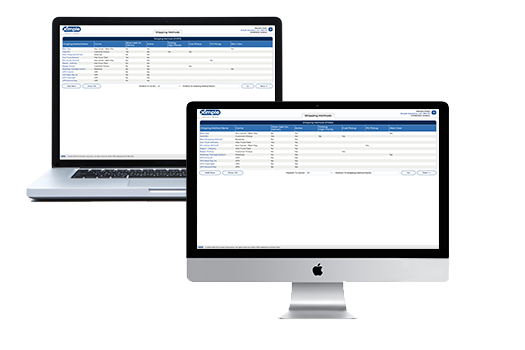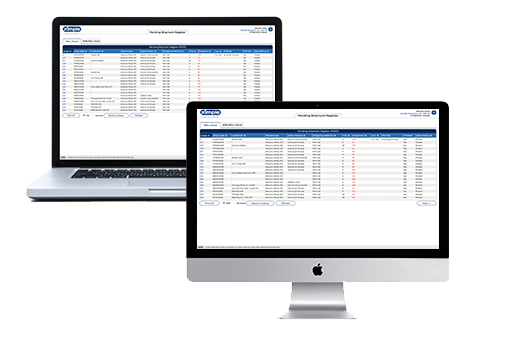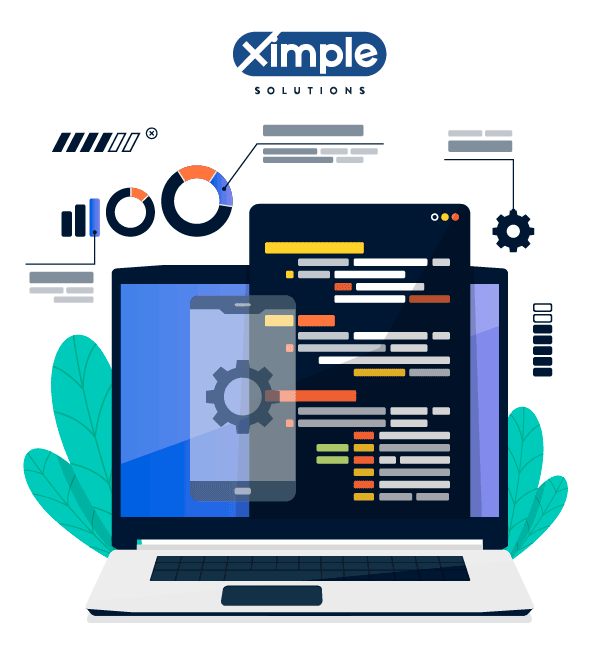 Wholesale Business: Current Challenges and Opportunities
Wholesale Business: Current Challenges and Opportunities
Does have wholesale distributors business struggle with managing orders, inventory, customer relationships, or other related business processes? Well, distribution ERP software is what you need.
Distributors businesses have challenges and opportunities related to managing production and distribution. However, understanding distribution ERP and its performance are essential for your business.
 What Is ERP Software for Wholesale Distributors?
What Is ERP Software for Wholesale Distributors?
Distribution enterprise resource planning (ERP) software is an application system that companies integrate to streamline their supply chain management processes. Institutions use these enterprise packages by merging the operations and functions of their subunits or departments. The integrated system can effectively control inventory. These companies use wholsalers ERP software for forecasting, accounting, managing lists, order requests and purchases, and handling customer support.
 Features of Wholesale Distribution ERP
Features of Wholesale Distribution ERP
For a company to successfully manage the distribution processes, such as the supply chain from the warehouse to the retailers, it needs a well-coordinated distribution ERP package.
Besides, organizations want to manage many stakeholders within a singular unit to ease production and distribution processes. Thus, distributors need specific features to achieve their targets without hassle. You need the following features to achieve your wholesale business goals.
Stocks and Inventory Management
Ineffective inventory management is evidenced by frequent overstocking or understocking and delays in incoming and outgoing shipments for Distributors. In addition to keeping tabs on shipment and stocks, good inventory management requires keeping track of rates of return, noting transfers and restocking, and noting input stock modifications.
Inventory control components are a common feature of distributor ERP systems. They often collaborate with warehouse operations to monitor stock levels and any changes made to them. When combined with logistics operations, the distribution erp solutions gives managers a bird’s-eye view of all investment flow, down to the last detail.
Order Management
Orders from customers are the lifeblood of a distributor, but they can also be a significant source of stress for executives if not appropriately handled. Modern order management systems aggregate all orders, including those placed through e-commerce platforms, into a centralized database for convenient analysis. All pertinent customer information from the order should be recorded in the software, creating in-depth customer profiles.
The most effective order management system will help wholesalers streamline not just the order fulfillment operation but also the generation and management of quotes and price adjustments. The order workflow, beginning with the receipt of a new customer order and ending with the confirmation of order completion, runs more smoothly when orders are managed in an orderly fashion.
Supply Chain Management
Wholesaler software is necessary for managing supply chain processes. All packed goods must be counted, ordered, and completed on schedule. However, this is only possible when wholesale distributors integrates all stakeholders. Distributors’ ability to efficiently fulfill orders depends on the smooth operation of each link in that network. With proper supplier management in place, your company will have the means to communicate with all relevant partners in real-time.
A supplier management feature is handy for large-scale distributors with substantial order volumes and various facilities. This software facilitates better connections between sites and businesses.
Financial and Accounting Management
When distributors want to accurately determine operating expenditures and income, they must retain control over business costs and client payment processing. Disribution ERP solutions acts as a procurement and purchasing tool. The package helps managers keep tabs on inventory costs while keeping an eye on acquisitions and spending plans.
Distributors also access important invoicing and billing features as their financial management solutions. This allows them to track order changes and automatically notify and charge customers for their purchases. Companies without financial tools should consider whether they can access industry-standard accounting functions.
Integrations
As a distributor, you know how important it is to have your enterprise, revenue, and accounting systems work together without a hitch. They evaluate prospective distributor options based on their compatibility with your current platforms. This will be much more challenging to properly adopt a new wholesale erp if it cannot effectively integrate with the currently installed system.
You can create a customized integration with external programs using API support. If you expect to need to tailor the settings of your different applications, you may want to keep an eye out for this feature when you purchase.
Business Analytics
You need distribution erp software to achieve more than just keeping track of all the moving parts. The system should also collect and analyze relevant data, then deliver that information in a way that gives users expertise they can put to use. It would help if you had sophisticated analysis and reporting to turn your wholesale company’s unstructured data into actionable metrics for measuring productivity, performance, and profitability.
Business analytics is essential for businesses, especially using big data to guide enterprises to intelligent decision-making. These aspects include data forecasting, predicting inventory management, and supply-demand requirements.
 Types of Wholesale Distribution ERP Software
Types of Wholesale Distribution ERP Software
Distribution ERP system comes in three main types: CRM, Supplier Relationship Management, and Warehouse management system.
CRM software
CRM software, or Customer Relationship Management software, helps businesses keep track of customer information and interactions to build strong relationships and improve customer satisfaction. This type of software often includes features such as contact management, sales management, marketing automation, and customer service.
Supplier Relationship Management Software
Supplier Relationship Management Software is designed to help businesses manage their relationships with suppliers. This software can help enterprises to track supplier performance, manage supplier contracts, and negotiate better terms and conditions.
Warehouse management system software
Warehouse management system software is designed to help businesses manage their warehouses and inventory. This software can help enterprises to track stock levels, manage stock movements, and optimize space utilization.
 Benefits of Wholesale Distributors ERP
Benefits of Wholesale Distributors ERP
Maximize Revenue
ERP for wholesalers can help your business earn more money by increasing output and improving quality. By integrating regulatory systems at the production levels, companies can maximize production and reduce delays. One way to create a more effective production chain is to monitor the real-time downtime your machinery experiences.
Boost Productivity
The distributors erp primary purpose is to enhance productivity through automation. The early stages of a company’s development are infamous for being chaotic. Many jobs pile up, and companies don’t have enough staffing or financial resources to handle them.
Automating repetitive processes, including purchase requisition input and shipment alerts, can free up time and resources for more strategic endeavors. In addition, you can reduce the likelihood of making mistakes by automating essential operations. Common human typing errors, which can have a severe impact on your organization, can be avoided.
Encourage customer loyalty and increase sales
ERP software for distributors has the potential to assist customers by facilitating more streamlined production and distribution processes. Automating processes like shipping alerts and speeding up the production process are two ways this technology can benefit small businesses and their clients. For example, integrations between distribution ERP systems and customer relationship management systems allow for more targeted product suggestions and higher conversion rates.
Order Processing for Sales
Sales order distributor software can help your company streamline the order entry, processing, and fulfillment processes. Shipment and invoice tracking are just two examples of the automatic features available in some tools. As a bonus, wholesale distributor ERP for small businesses may also log sales orders made through various channels. Manual data input and tracking of many procedures can be simplified, allowing employees more time to focus on the myriad of other duties that must be fulfilled to keep a firm running.
Conduct Extensive Data Analysis
One of the primary advantages of distribution ERP is data centralization. Thanks to these applications, there will be more openness and a wealth of relevant data at your disposal. By sharing data across departments, your firm can better identify trends and convey information rapidly. In addition, several software packages provide proper data visualizations to hasten the exploration process.
Warehouse Management
Tools for managing a warehouse can facilitate the processes of picking, packaging, shipping, and storage. Logistics management is a valuable component of distributor ERP for businesses. It allows firsthand monitoring of order fulfillment and the progress made in the warehouse. Connecting the warehouse’s devices and machinery to the web using wholesale ERP software’s IoT features gives a business an overview of operations in real time.
Management of Production Processes
Production management is an essential process for distributors. Through the distributor erp, companies can merge warehouse management and production processes. They are complementary and require real-time analysis or monitoring. Through the distribution ERP, you can improve production planning and capacity planning. These tools are essential in improving the production processes. By streamlining processes and reducing opportunities for human mistakes, these components help speed up the manufacturing cycle. Maximizing efficiency is a guaranteed way to increase output and sales.
Supply Chain Management
It’s not easy to pick and manage vendors for your company. Procurement management tools should track a supplier’s effectiveness, plan purchases, and generate purchase orders. Some small business distributor ERP platforms can send procurement orders and estimate inventory levels based on past data. Procurement management also helps businesses forecast how much of a specific commodity they will require to meet client demand, which can help cut waste and increase profits.
Customer Relationship Management
Customer relations are essential in managing a competitive business. After all, a company cannot survive without the patronage of its target market. Customer relationship management tools provide more precise ad targeting, user management, and record keeping. Customers are more likely to do business with you if they can make informed decisions about their purchases and you can provide them with the information they need at their disposal.
Users can make purchases with minimal effort by simply logging in, selecting the item they want to buy, and providing payment details that have already been stored in their accounts. E-Bay is an excellent case of a corporation making good use of this feature because it allows you to make an immediate purchase with just one click, and it does so by using your previously saved shipping and billing information.
 Challenges of Wholesale Distributor ERP
Challenges of Wholesale Distributor ERP
There are many challenges when it comes to distributor ERP software. Let’s review few of the most common challenges:
- Planning for growth: As a business grows, the demands on distribution ERP can increase. It is essential to plan for this growth so that the software can continue to meet the needs of the business.
- Integration with other systems: Distribution ERP software often needs to be integrated with other business systems, such as accounting, CRM, and warehouse management. If these systems are not well integrated, it can lead to inefficiencies and data inaccuracies.
- Managing multiple locations: If a business has various locations, the wholesale ERP must handle this. A sound system will allow for different inventories at each location and will be able to route orders to the closest location.
- Handling special orders: Some orders may require special handling, such as rush shipping or special packaging. The wholesale distributor ERP software needs to be able to accommodate these orders so that they are fulfilled correctly.
 Market Trends
Market Trends
When you choose to purchase ERP for wholesalers, you need to consider the following market trends:
Strategic Inventory Control
Keeping up with sales and orders is essential for businesses to guarantee enough stock to meet consumer delivery expectations. This reduces the backlog of orders as the volume of online sales continues to rise. Automation helps distributors to optimize their stock-taking processes. Distribution ERP is the best option for gaining an understanding of real-time information. The software is automatically updated according to the order management processes at the warehouse. The inventory levels are transparent to the management, sales staff, and consumers.
Digital Commerce Management
Its critical to have solding online presence for running a profitable wholesale business. Throughout the coronavirus pandemic, many wholesale distributors businesses have gone online. Customers increasingly desire a consistent, streamlined experience across all interactions with a brand. With the right e-Commerce distributor ERP, you can streamline the customer shopping experience across your sales channels.
If your company primarily deals with business-to-business transactions, a digital order portal will enable your customers to order anytime, regardless of your business hours. The system will provide your sales staff with accurate inventory processes.
Sustainability
The wholesale distribution industry has not traditionally placed a premium on sustainability. However, sustainability is more than a passing trend. It’s an entire way of life that extends far beyond commercial enterprises. The triple bottom line, which considers how a company handles its financial, human, and environmental resources, is being adopted by many medium and large-sized enterprises.
Integration of Corporate Social Responsibility
People-centered mindset is at the heart of the “people-first” ideology, which prioritizes helping others over maximizing financial gain. If workers have a strong sense of belonging to the team and are encouraged to share their ideas, they are more likely to contribute to the business’s success. Due to the global pandemic, several companies either temporarily shut down or implemented additional safety measures. Meanwhile, by automated staff scheduling, distribution ERP has been necessary for reducing congestion at warehouses.






 Wholesale Business: Current Challenges and Opportunities
Wholesale Business: Current Challenges and Opportunities
